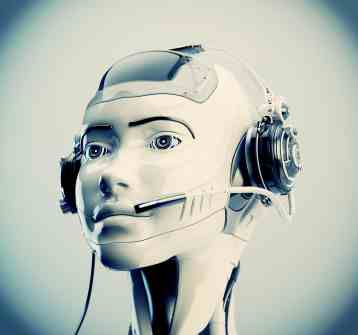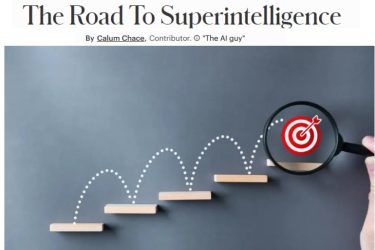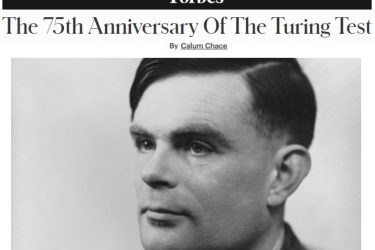
Bill Gates has floated the idea of taxing robots which replace human workers. He said it in an interview (here) with Quartz, a media outlet owned by The Atlantic, and staffed by journalists from The Economist, the New York Times and other publications that Dirty Donald would label as fake news. They made a nice short video (here) to promote the piece, with Gates giggling at the end about the idea of paying more taxes.
It’s a neat idea, and has got a lot of people online very excited. It could help to pay for Universal Basic Income, which is also very exciting to a lot of people online. And it could slow down the pace of cognitive automation, although that isn’t an aspect he is majoring on.
Unfortunately I’m pretty sure it won’t work, and I suspect that Gates understands this. (After all, he is a good deal smarter than me.)
Imagine two firms offering the same service. One has been going for a few years, and recently replaced a thousand humans with machines. The other is a startup, and went straight to machines. The former would be hit by a tax that the latter would escape. Not only is that very unfair, it would simply mean the former would close, and the tax take would disappear anyway.

Machines will rarely replace humans on a one-for-one basis. Humans will disappear from call centres, and be replaced by an AI system running on the cloud somewhere, not by a physical robot like in the picture above. Does the government tax one entity – namely the AI – or several, to account for all the unemployed humans?
If you spend a few minutes at this I bet you can come up with a whole lot more reasons why you can’t stabilise the government’s revenues by treating AIs as straight replacements for humans.
But I do think Gates is onto something very important. A couple of years ago he was one of the famous people who warned that strong AI and superintelligence are coming, and that we had to prepare for it. He was one of the “three wise men” who woke the world up to the possibility that we are heading towards a Technological Singularity. The others, of course, were Stephen Hawking and Elon Musk.

Maybe he is now going to do the same with regard to the Economic Singularity – the idea that within a generation most humans are going to be unemployable, and we will need to design and adopt a new economic system. Most economists are still in denial, arguing that automation has not caused lasting unemployment in that past, so it will not do so in the future. They say that fears about cognitive automation leading to technological automation are simply the Luddite Fallacy. But of course, past performance is no guarantee of future outcome, and the economists may well be victims of the Reverse Luddite Fallacy.
We need a “three wise men” (or how about a “three wise women”?) moment for the Economic Singularity. Bring it on, Mr Gates.
It is very likely that part of the solution to technological automation – for part of our future at least – will be heavy taxes on those corporations and individuals who own the means of production. Whether we are looking to fund a Universal Basic Income or something more generous, tax is likely to play an important part in the story.
It’s just not likely to be a tax on individual robots.


